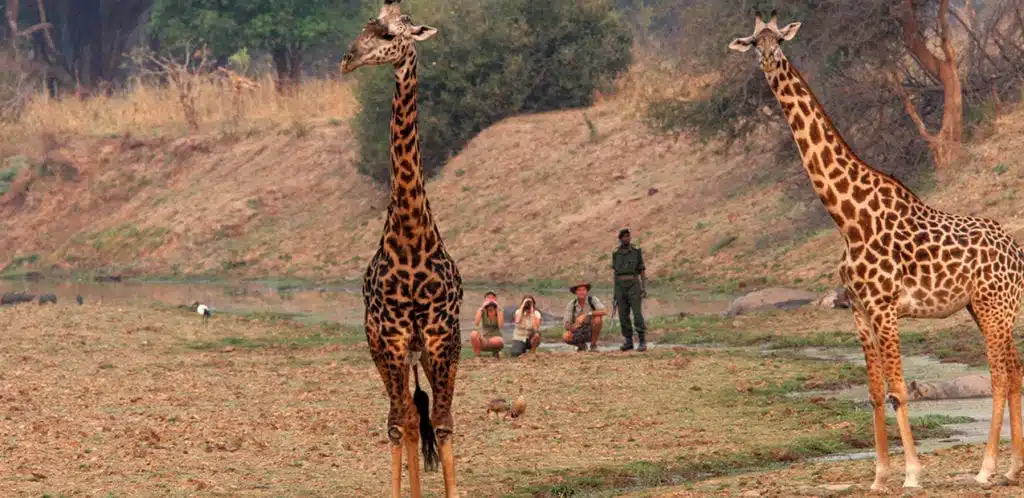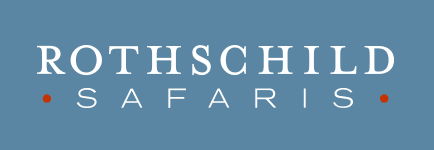Awaiting the Travel + Leisure Travelers’ Choice Awards List for the Top 5 properties in Africa drives us batty with suspense every July! Now the list is out…

Who made it to the top in 2019?
Take a peek!!!

Why do we care about what Travel + Leisure thinks?
Because, since it started as mostly a photography magazine in 1973, Travel + Leisure has consistently brought the travel goods to our travelers’ tables.
Travel + Leisure has been the champion of sophisticated travelers everywhere, and its expert intelligence and very immersive, inspiring style captivate people everywhere. If you are looking for exciting travel lifestyle news, look no further.
The T + L brand aims to capture the joy of discovery and every pleasure from art and design to shopping and style as well as food and wine. It may feature articles by novelists, poets, artists, designers, and non-travel journalists. Even though it changed its name from U.S. Camera and Travel, the travel imagery can still be considered the heart of the magazine.
The World’s Best Awards survey has been taking place since August of 1995, and with eight international editions from Russia to Australia/ New Zealand, the survey results are some of the most extensively sourced metrics in the travel world.
Last year the readers of Travel + Leisure voted Zambia’s Mfuwe Lodge in the number 3 spot as it earned a 93.88 score from readers who voted.
Mfuwe Lodge is still one of our favorites… we are so happy it made the 2019 list!

Why is South Luangwa one of our favorite destinations?
One of Africa’s foremost wildlife sanctuaries, the Luangwa Valley’s sheer concentration and variety of game and birdlife put it on the map for the most discerning of travelers.
In deepest Zambia, the ‘real Africa’ is still an attainable dream, and the South Luangwa Valley makes up the tip of the Great Rift Valley’s tail. The continental fault that runs from the Red Sea through East Africa is responsible for some of the most spectacular escarpment scenery in all of Africa.
This western arm of the rift stretches some 435 miles (700 km) at an average width of around 62 miles (100 km) and is known as the Luangwa Valley in Zambia. The Muchinga Mountain range is the boundary of the valley in the west, and towards the east, a less defined escarpment delineates the valley floor which lies around a 3,280 feet (1,000 m) below the plateaus.
The Luangwa River meanders down the center of the Valley, fed every rainy season by dozens of sand rivers. The flood can be rapturous, eroding outer bends and depositing silt to form ‘oxbow’ lagoons that play an essential role in the riverine ecology and support all the wildlife that calls the Valley home.
Thick, lush, riverine, evergreen forests surround the Luangwa River and its tributaries. On the Western banks lie the North and South Luangwa National Parks, and to the East, there is the undeveloped Luambe and Lukusuzi Parks.
An excellent conservation history
Elephant and hippo hunting was rife in the Luangwa Valley as the Chikunda tribe of Mozambique, and Arab traders from Malawi exploited the area’s plentiful game. A first hunting ban was instituted by the British South Africa Company in the 19th century, and once elephant numbers had recovered the BSAC also established the first game reserve in the Luamfwa region in 1904 intending to protect the last remaining endemic Thornicroft’s Giraffes.
By 1911 elephant populations were out of control and the park was deproclaimed. It would be 21 years before game reserves and elephant control were recommended, and the North and South Parks and Luambe were proclaimed in 1938.
One of the region’s famous names, still well known today, entered the picture as Norman Carr was appointed game ranger with Bert Schultz in 1939.
Villages were moved to the periphery, and Carr recommended that hunting revenues go to the local Native Authorities in the 1940s.
In 1951 one of the local Chiefs, on the advice of Carr also set aside some tribal land to build one of the first safari camps with proceeds going back to the community. This corner of Zambia slowly moved forward with the times as a pontoon would connect people from across the Luangwa River and all-weather roads led to more safari camps popping up.
The elephant populations reached another peak in 1973, but elephant and rhino numbers would decline steadily as poaching ran rampant. The private Save the Rhino Trust, started running extensive anti-poaching patrols after it was established in 1980, but efforts were in vain as the horned giants would disappear entirely from the area.
Today around 20 operators are spread along 150 kilometers of the Luangwa River.
One of these camps is the lovely Mfuwe lodge, only five minutes’ drive from the main National Park gate.
Why do our travelers love Mfuwe Lodge?
Tucked under Ebony and Mahogany trees, 18 standalone thatched chalets are set around two lagoons. The camp is a trendy hangout for a plethora of birdlife, elephants, giraffes and all kinds of water creatures from hippos to crocodiles and monitor lizards.
Guests can enjoy all the wildlife from the comfort of the airy rooms in front of their verandah or as they lounge by the pool. Comfortable private sitting rooms and en-suite bathrooms with panoramic walk-in showers complete a very memorable beat along your African Safari track.
For anyone visiting in November, there is a special treat as the local elephants famously saunter right through the lobby to partake in the camp’s mango tree.
If you are feeling particularly indulgent, you can pop into the award-winning Bush-spa to enjoy the contemporary mix of eastern and western treatments… the spa has a private deck with an herbal Jacuzzi for more exclusive game viewing.
The atmosphere is relaxed and spoiling. The overall feeling is very much that of having your own private piece of Africa. Comfortable private sitting rooms and en-suite bathrooms with panoramic walk-in showers complete a very memorable beat along your African Safari track.
While it is tempting to do all your game viewing from your verandah, you may want to venture into the park. A game drive with a world-class guide taking you out at morning’s first light is just the thing to get your day started. Head out again after tea in the afternoon, this time with sundowners along the way and a spotlight trip home to take in the nocturnal creatures. All your game drives will bring you close to Africa’s wild inhabitants.
Walking safaris are arranged on request and provide an intimate experience. They say you see Africa from a game drive and hear and feel it on foot.
Our guests often report that they enjoy cultural encounters as much as wildlife experiences. Meeting people from the countries we visit also happens to be one of the Rothschild Safaris staff’s favorite activities. At Mfuwe Lodge, cultural visits to the local village, school, and textiles/handicraft market are rounded off by a little retail therapy in the curio shop that is stocked with many local African wares. Travel shopping, done.


